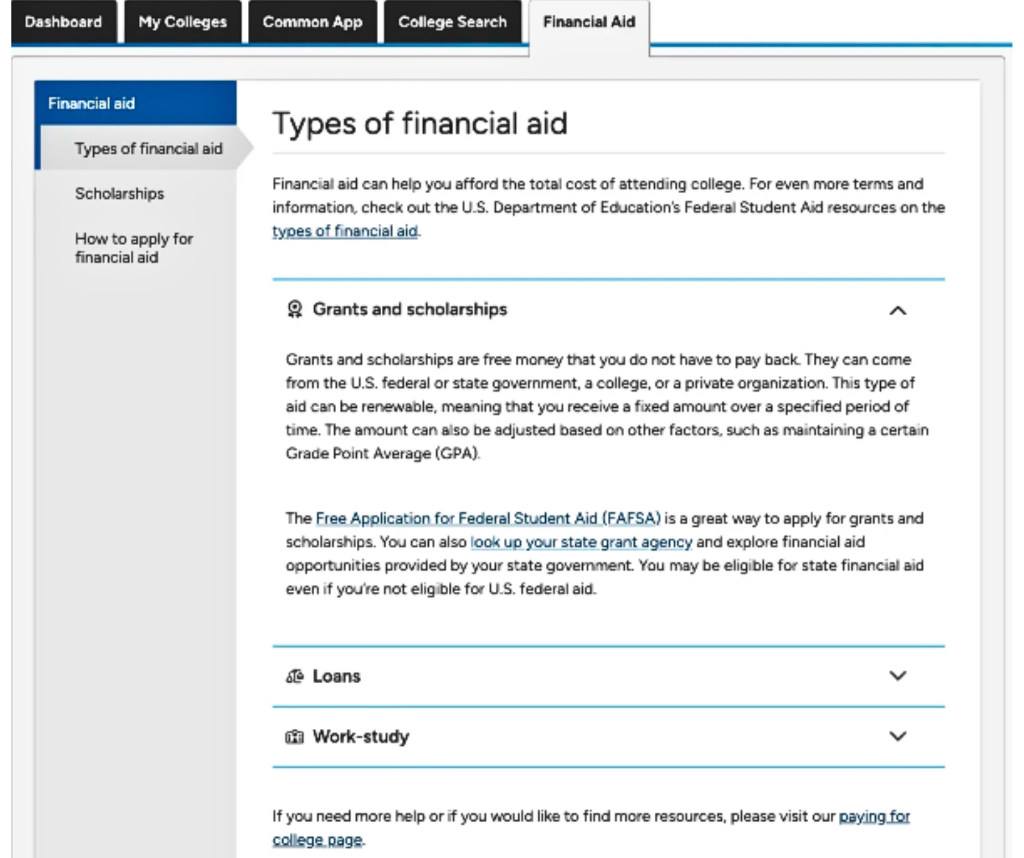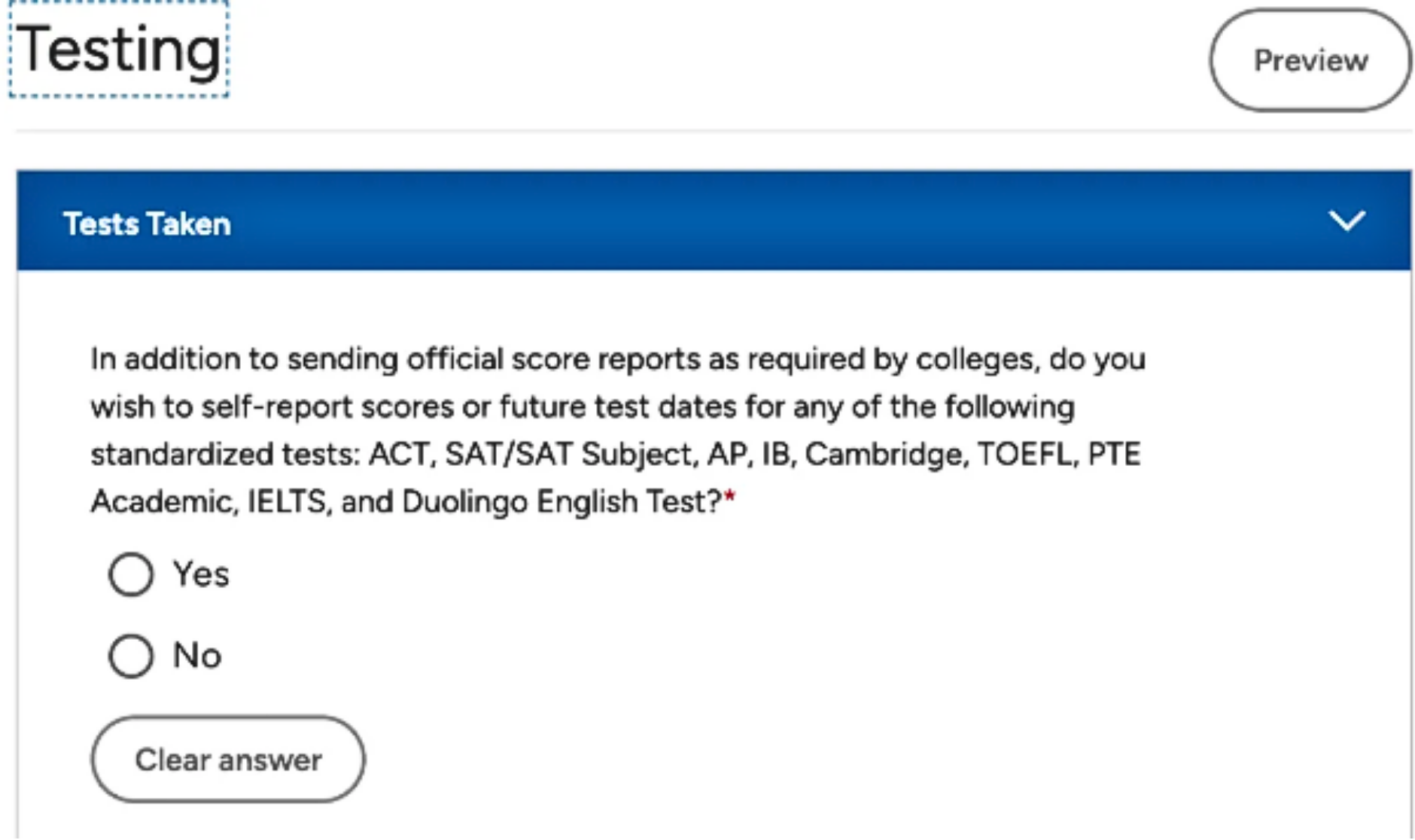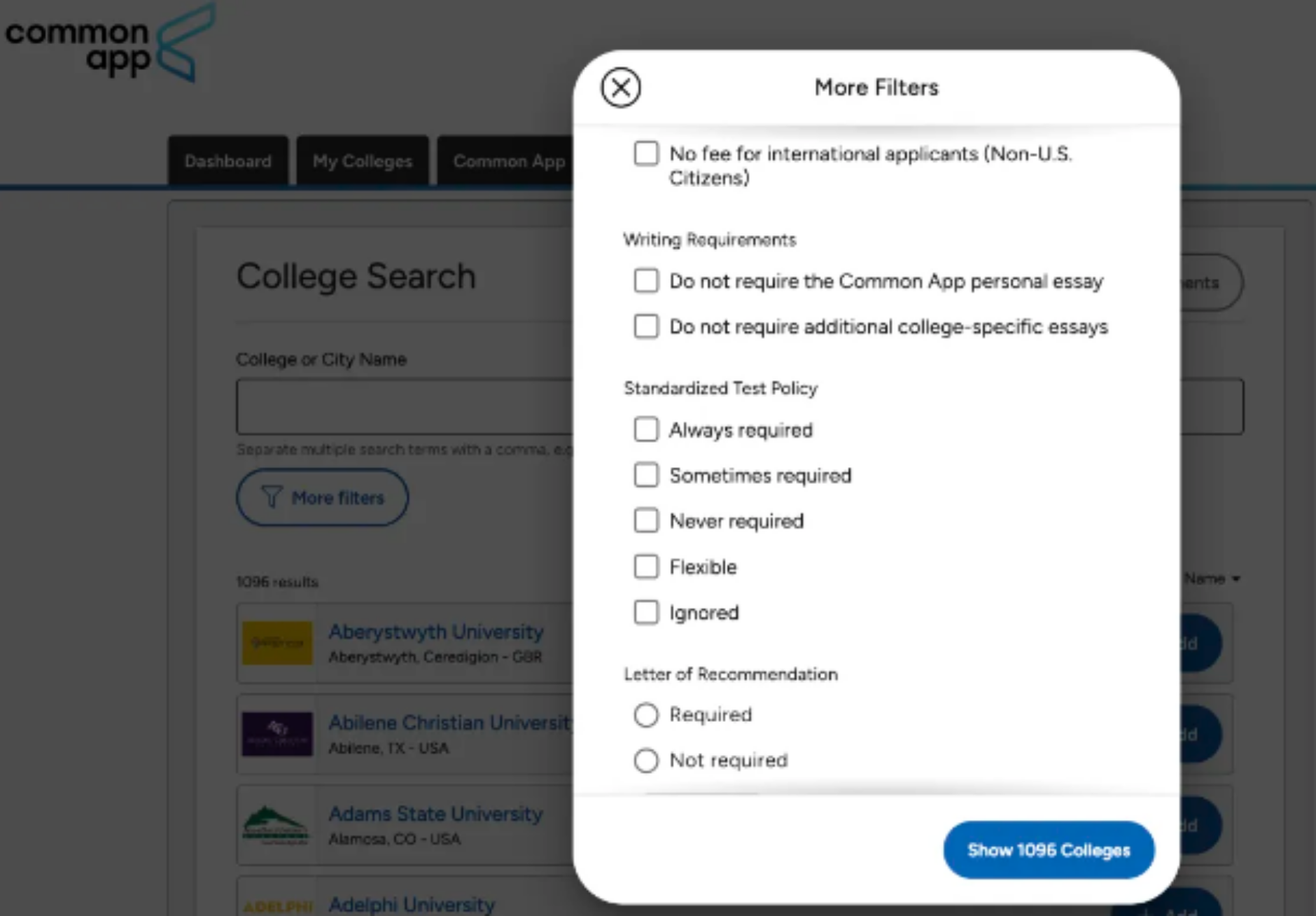The 2024 application cycle for both the Common App and the University of California (UC) system is now open. Here are the six most noteworthy changes in the online application process and timeline.
2024 Updates for the Common App Online Application Features
1. Enhanced Financial Aid Tab
This year, the Common App has redesigned the Financial Aid tab to provide clearer steps for obtaining financial aid. This update is designed to assist students and their families in navigating the process more effectively, making it easier to find and apply for scholarships.

2. Updated Fraud Policy
In response to the rise of AI plagiarism, the Common App has updated its fraud policy. The use of AI platforms for application essays is now considered fraud. Students should ensure their essays are original and reflect their true selves, as authenticity resonates more with admissions officers.
Common App defines Fraud as an intent to deceive, mislead, or otherwise perpetuate misinformation upon a Common App member regarding the candidacy of a student-applicant for admission. An alleged act of Fraud generally occurs, for example, when information is entered by a Registered User into the Solution intending to deceive or mislead a member. Fraud may occur in the following circumstances, without limitation:
Submitting fabricated or materially misleading letters of recommendation;
Submitting fabricated, untrue, or otherwise inaccurate transcripts and/or test scores;
Submitting plagiarized essays or other written or oral material, or intentionally misrepresenting as one’s own original work: (1) another person’s thoughts, language, ideas, expressions, or experiences or (2) the substantive content or output of an artificial intelligence platform, technology, or algorithm;
Materially misrepresenting an individual’s background, role, job title, or other qualifications;
Perpetuating a false identity and/or using fictitious or materially inaccurate applicant, counselor, or recommender contact information; and/or
Circumventing the use of official counselor communication channels
3. City Year Application Option
For students considering a gap year, the Common App now includes City Year as an application option. City Year is a national service organization where recent graduates can spend a year engaged in community service, providing an enriching experience before starting college.

4. Streamline Your Common App with Self-Reported Scores
Students can now self-report their Cambridge English exam scores on the Common App. This change aims to streamline the application process and expedite the review of applications that require proof of English proficiency.

5. Redesigned University Information Page
The information pages for each college on the Common App have been redesigned for better organization. Information is now grouped by category, making it easier for students to find application requirements and deadlines.

6. Transfer Application Interface Lates Addition
If you are currently enrolled in college but wish to transfer, the transfer application page now includes a "GED or equivalent" option in the Academic Experience section in addition to a high school diploma. There are also more personal information questions and updated grade types so colleges can get to know students better.
UC Application System Timeline
The UC application system opens for submissions from August 1 to November 30 each year, demanding careful time management. Here’s a detailed timeline to help navigate the process:

August: The UC application becomes available online. Students can start entering personal information, academic history, and extracurricular activities, and begin preparing their Personal Insight Questions (PIQs).
October: The official submission period for UC applications begins. Students can submit their completed applications and apply for fee waivers if eligible. Utilize the "Additional Notes" section to provide any extra information.
November 30: Deadline to submit UC applications. Ensure all sections are completed and reviewed before this date to avoid last-minute issues.
December: Post-submission, students can make revisions to certain sections if needed.
January: The UC system may request additional information, such as letters of recommendation or questionnaires. Respond promptly to any requests.
February: Report any changes to your fall schedule or grades to the UC campuses you applied to.
March: UC campuses release admission decisions. Check your application status online and follow instructions if waitlisted.
April: Visit UC campuses where you’ve been admitted and consider the appeals process if necessary.
May: Submit the Statement of Intent to Register (SIR) and enrollment deposit by May 1. Complete the UC Analytical Writing Placement Exam.
June: Report any changes to your spring schedule, including grades of D or F.
July 1: Submit your final official high school transcript, including your graduation date and final grades, to the UC campus you will attend. Failure to meet this deadline may impact your admission.
Staying informed about these updates and adhering to the timelines is essential for a successful application process. With the new features and changes to both the Common App and UC systems, students now have more resources at their disposal to simplify their application journey. To make the most of these enhancements and ensure your application stands out, personalized guidance can be invaluable. At 7EDU, we provide expert counseling and application services designed to support students and families throughout the college admissions process, helping reach academic goals and get into your dream college.


